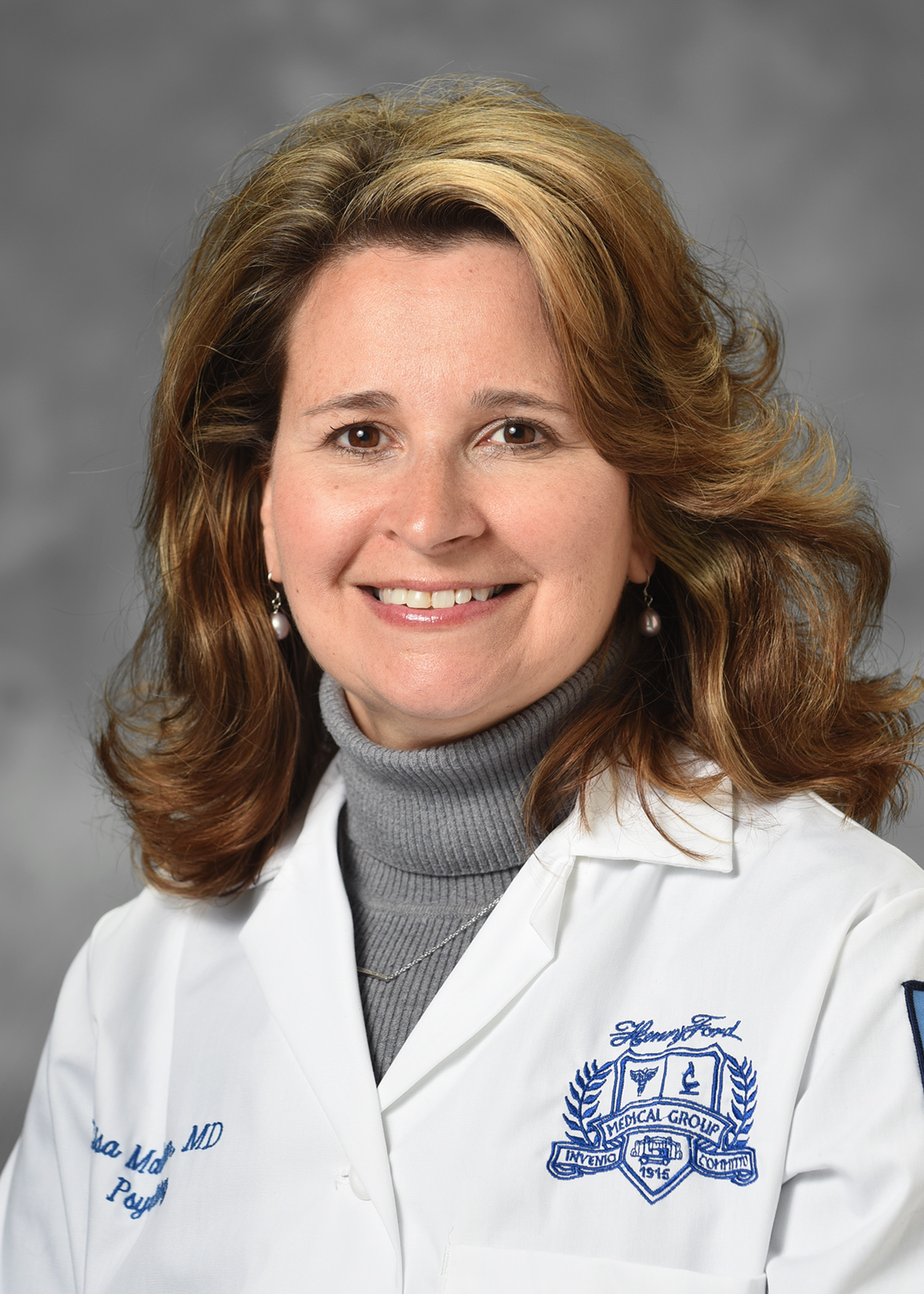|
Behind the White Coat -- Lisa MacLean, M.D. Psychiatrist Lisa MacLean, M.D. has a long history and deep roots in Detroit and at Henry Ford Health System. In this edition of Behind the White Coat, Dr. MacLean shares her thoughts on physician wellness, medical education and the impacts of the COVID-19 pandemic on providers. Why did you become a physician?
From as far back as middle school, I can remember wanting to be a physician. I was always a strong student, good at science and interested in helping others. The role of doctor allowed me to use all those attributes. I specifically picked psychiatry because of my passion for people. I have always been someone that develops rapport with people quickly so working in psychiatry has allowed me to use that skill to help my patients. More recently I have used my experiences in my role as Director of Physician Wellness. Being perfectionistic, super hardworking and highly motivated are all qualities that have been both a strength and a weakness for me. I felt that I had a story to share with my colleagues and hoped with the skills I learned as a psychiatrist and with my life experiences I could create programming that would help my colleagues to have good work life integration, to feel resilient and to mitigate burnout. What is the proudest moment of your career so far? I was very proud to be the Associate Dean of Students at Wayne State University School of Medicine from 2012-2017. It was a true gift to guide and mentor medical students on their journey in medicine. In that role, I really felt I was impacting students and potentially impacting all the people they might serve in their future. This role was one of the highlights of my career. What do you do as Henry Ford’s Director of Physician Wellness? I pivoted toward the position in Wellness at Henry Ford in 2017. I recognized in my role at the WSU School of Medicine that there was something about the process of how we educate people to become physicians that is intrinsically painful. Research has shown that students who enter medical school are enthusiastic, emotionally healthy, and empathic. Within the first two years something shifts and students become depressed and burned out. It really made me wonder what is happening within the process and how we can change the student, resident and faculty experience. It’s been very exciting to work within physician wellness for the past 4 years. In this role, I have done a lot of asking, measuring, telling, developing, implementing and asking again. It’s the type of work that is never done and you never quite get there. This dilemma of provider burnout is so critical to any organization and has a significant negative downstream effect both personally for our physicians, but also for their patients. It’s been exciting to hear about the pain points that get in the way of the work that really matters to my colleagues. In the last four years, I have worked within Graduate Medical Education and with the Henry Ford Medical Group to develop multiple programs to support our physicians. For residents, I have focused on building awareness through wellness rounds, breaking down barriers to access care by hiring a Physician EAP therapist, showing appreciation through many events and finally recognizing our "Stars" through the Alumni Association Star Award. With our faculty, I have developed the Connect the Docs program, the TRUST Peer Support Program, ACT-based Resiliency Building Workshops, and worked with various departments on Quality Improvement projects to better understand their processes so that we can improve the quality of their work. How did that role evolve during the pandemic? It became clear to me right away that the scope of my work could not just be physician- focused during the pandemic. I became an important member of the COVID Heal and Recover team during the pandemic. As part of this team, we have been behind most of the emotional support resources that have emerged over the past year. These included our COVID Support Hotline and our virtual support groups during the first surge. We also developed the Peer Processing Group intervention whereby a member of our team collaborated with a clinical lead to create a psychologically safe space to discuss the impact of COVID on us as individuals and our teams within a small group of 5-10 team members. These groups provided validation and were focused on helping our colleagues to heal and grow in spite of this difficult experience. Most recently, our team rolled out our Care Cart initiative which allows us to connect on the front with our colleagues offering a healthy snack and thanking them. We have also developed the Stronger Together Buddy Program that gets colleagues supporting colleagues and provides tools to them for a 12-week period. We are currently working on creating monthly educational seminars on things like preventing burnout and recovering from exhaustion for anyone in the system to continue to build awareness, connect with people at all levels and make sure people are aware of the support through EAP and Behavioral Health Services they can get. What projects are you working on next, or what are you most excited for in the future? My next project is to ask again. This pandemic has changed everything. The needs in 2017 versus the needs now are not the same. I need to go back and do focus groups again. I need to hear from our residents, fellows and faculty what they think and regroup. As an organization, we need to understand the pain points of our providers so that we can focus our interventions on what’s next. I am excited to hear from my colleagues and to work collaboratively with them to develop strategies that will resonate with them and hopefully promote healing. |
|
|
